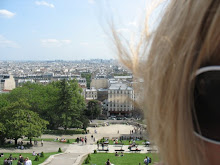I’ve never read the entirety of the play Amadeus, but have seen the movie a few times and really enjoyed it. I would love to one day see the play performed, I’m sure it is amazing. This last scene was exceptional to me, almost perfectly detailed and edited.
I like the use of the Venticelli in the beginning of scene 15, serving as a chorus. I especially like the effect of having two of them speak at once to add emphasis.
At first I was not sure how I felt about Salieri speaking directly to the audience in the past tense, as if he was telling the story, but as it went on I ultimately thought it added a lot we would have missed otherwise and worked well. The monologuing gives it almost a short story quality, which I like. Visually the action paired with the narration I think would be very interesting to watch. There is one moment in particular that stuck out to me- when both Mozart and Salieri stand facing the audience and Mozart mimes speaking his words as Salieri sounds them aloud. This is a very cool effect. It also parallels Salieri’s manipulation and control of Mozart.
Obviously, the characterization of Mozart is incredible. His craziness comes across very well when he’s talking in rhyme. A childlike nature is so unexpected when one envisions what a genius like Mozart would be like. He is so trusting in this scene. He says, “you told me and I believe you” and refers to Salieri as “my one Protector.”
The poetic language also makes this scene and probably the entire play particularly beautiful and well written. Salieri says, “I held a terrible contradiction that only Art can show. Something immortal- yet stinking of death. Indestructible- and yet rotting.” Salieri’s view on God also struck a philosophical chord with me, when he says that God only uses and does not care.
Towards the end of the scene, Salieri says- “The profoundest voice in the world reduced to a nursery tune.” These are poignant words. To think that someone as incredible as Mozart could be so weak and childlike and strange is inherently fascinating. In the end, Salieri still is not heard.
This scene is a testament to how important meticulous revision is. He wasn’t satisfied, even with good reviews, so he worked until it felt right. It is admirable to see such hard work and dedication. It is true that a piece of artwork is never completely perfect or finished to the creator. There is always room for change and revision.
Tuesday, April 20, 2010
Subscribe to:
Posts (Atom)
